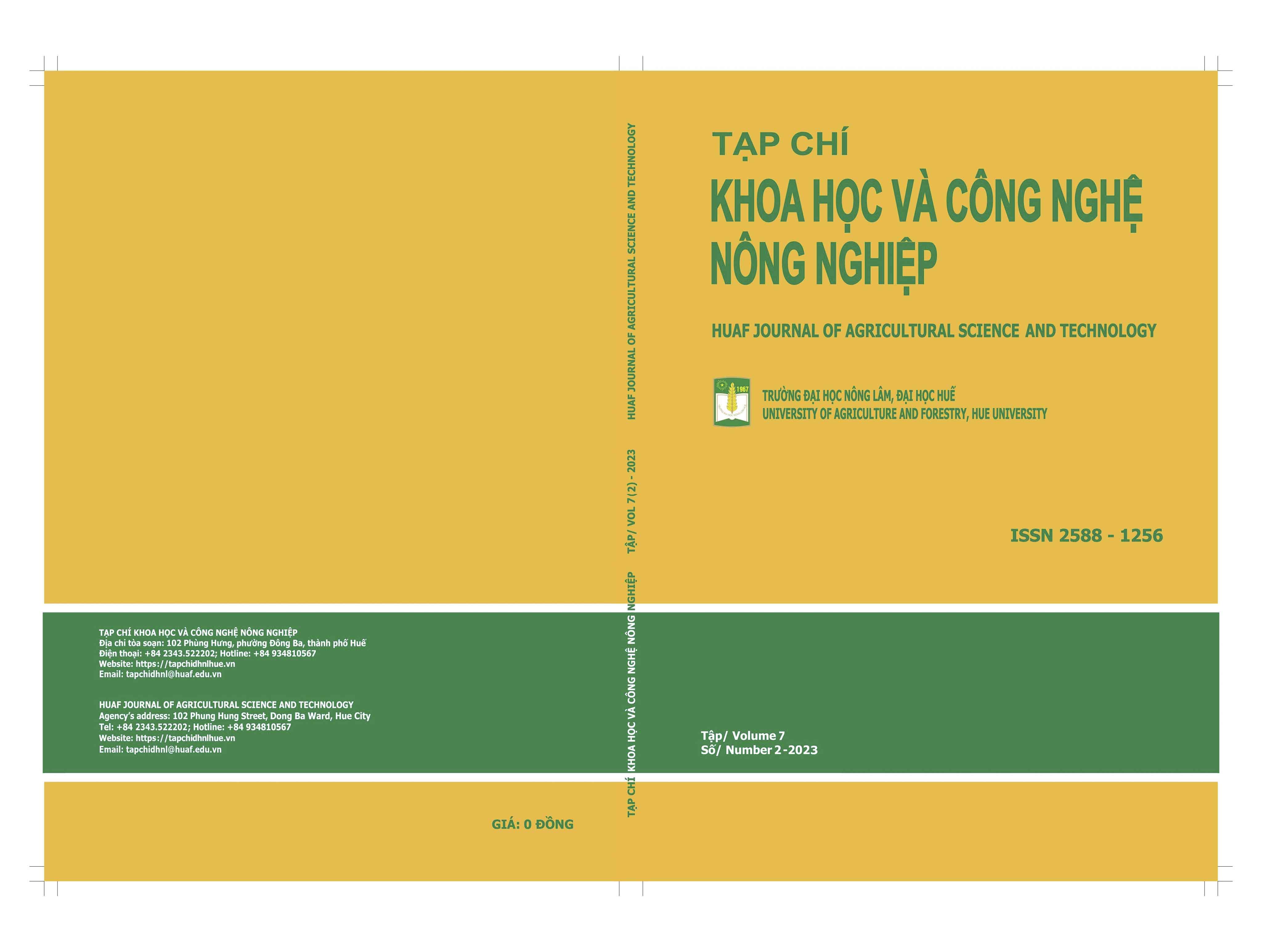##plugins.themes.huaf_theme.article.main##
Tóm tắt
Phương pháp nhân giống bằng giâm hom ở sắn có những hạn chế như hệ số nhân giống thấp, bệnh tích tụ trong quá trình sinh trưởng của cây mẹ rồi truyền sang cây con. Vì vậy, chúng tôi nghiên cứu phương pháp nhân giống sắn bằng nuôi cấy mô nhằm cung cấp nguồn cây giống in vitro sạch bệnh. Kết quả cho thấy, nồng độ và thời gian khử trùng mẫu thích hợp là 5% sodium hypochlorite (v/v) trong thời gian 10 phút đối với đốt thân từ vị trí 1 đến 5 và thời gian 20 phút đối với đốt thân từ vị trí 6 đến 10. Để nghiên cứu khả năng nhân nhanh, các đốt thân của chồi in vitro phát triển từ mắt ngủ được cấy lên môi trường MS bổ sung 0 – 5 mg/L BAP. Với nồng độ BAP 1 – 3 mg/L, chồi phát triển trực tiếp từ mắt ngủ của đốt thân, nồng độ BAP 4 – 5 mg/L, đốt thân hình thành mô sẹo, chồi sau đó hình thành sau 6 tuần nuôi cấy, tuy nhiên hình thái chồi có những bất thường so với cây mẹ. Do đó, chúng tôi sử dụng phương pháp phát triển chồi trực tiếp từ đốt thânmang mắt ngủ để nhân nhanh trên môi trường MS bổ sung 1mg/L BAP. Chồi và rễ phát triển tạo cây hoàn chỉnh tốt nhất trên môi trường MS bổ sung 1 mg/L BAP kết hợp với 0,1 mg/L NAA.


